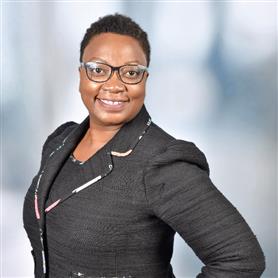
The finalists for WashingtonExec’s Pinnacle Awards were announced Oct. 13, and we’ll be highlighting some of them until the event takes place virtually Dec. 8.
Next is Diversity, Equity, & Inclusion Industry Executive of the Year finalist Kimberly Myers, who’s a principal at Deloitte and public services DEI leader. Here, she talks career turning points, career advice, primary focus areas going forward and more.
What was a turning point or inflection point in your career?
There have been many. One that comes immediately to mind is my early career decision to become a Ph.D. research scientist, and then use that degree in nontraditional ways to advance health across the U.S. That decision has opened many doors that I didn’t know were possible.
Most recently, motivated by our national awakening on issues related to race and ethnicity, as well as the unequal impact of the pandemic on many communities, I decided to take on greater leadership roles around DEI. I have felt strongly that the moment demanded my involvement and leadership, and that I had something to offer to the moment.
What are you most proud of having been a part of in your current organization?
I love working alongside people who bring incredible passion to what they do and have the depth and breadth of knowledge across many dimensions to back up that passion. I am most proud of our work helping the nation respond to the global pandemic, standing up efforts around health equity, and addressing systemic issues impacting underrepresented communities in the workplace.
I have enjoyed being a part of Deloitte’s focus on inclusion and commitment to moving out on necessary change quickly. I’m surrounded by bright, motivated minds ready to disrupt the status quo — and it has been an exciting journey thus far. I look forward to what the future holds.
What has made you successful in your current role?
There are a few things. First, I have found working with leadership who truly believe in — and are committed to — making change is the most critical key to success. You can have all the innovative, disruptive ideas in the world, but if you don’t have leaders who support change, it will be a tougher path. If you don’t already have leadership buy-in, you must find ways to build it, and bring them along for the journey.
I am also continually focused on efforts that will provide the highest return on investment, and I encourage my teams to ideate and then quickly move to action. Finally, the balance of short-term and long-term success is a bit of an art; both are required to move the needle.
Which rules do you think you should break more as a government/industry leader?
We operate with a lot of orthodoxies, strongly held and unchallenged beliefs, and traditional ways of doing things. We assume that these orthodoxies are “rules,” that we are required to do things in certain ways, or that certain outcomes are inevitable.
With that in mind, I no longer see an initial “no” as a dead-end – most times, it is simply an opportunity for a second and third conversation. The requirement to challenge orthodoxies is particularly critical regarding DEI.
What are your primary focus areas going forward, and why are those so important to the future of the nation?
My primary focus is to help organizations achieve systemic change in their workforce culture where DEI is not an activity or program, but rather a necessary part of how to conduct business. I believe that our schools, workplaces, governments and communities are at their best when they incorporate unique and diverse perspectives and experiences into the conversation. We’ll achieve and accomplish more, and the quality of what we do will be enhanced.
This type of collaboration can offer innovation, advancement, and success for some of the most critical problems our communities face.
What’s your best career advice for those who want to follow in your footsteps?
First, practice empathy — meet people where they are and attempt to understand problems from their perspective, without bias. Serve as a catalyst for change. Ask hard questions, and then challenge the answers, and do so while creating opportunity for win-win scenarios. Find opportunities to inspire and motivate people to think alternatively.

